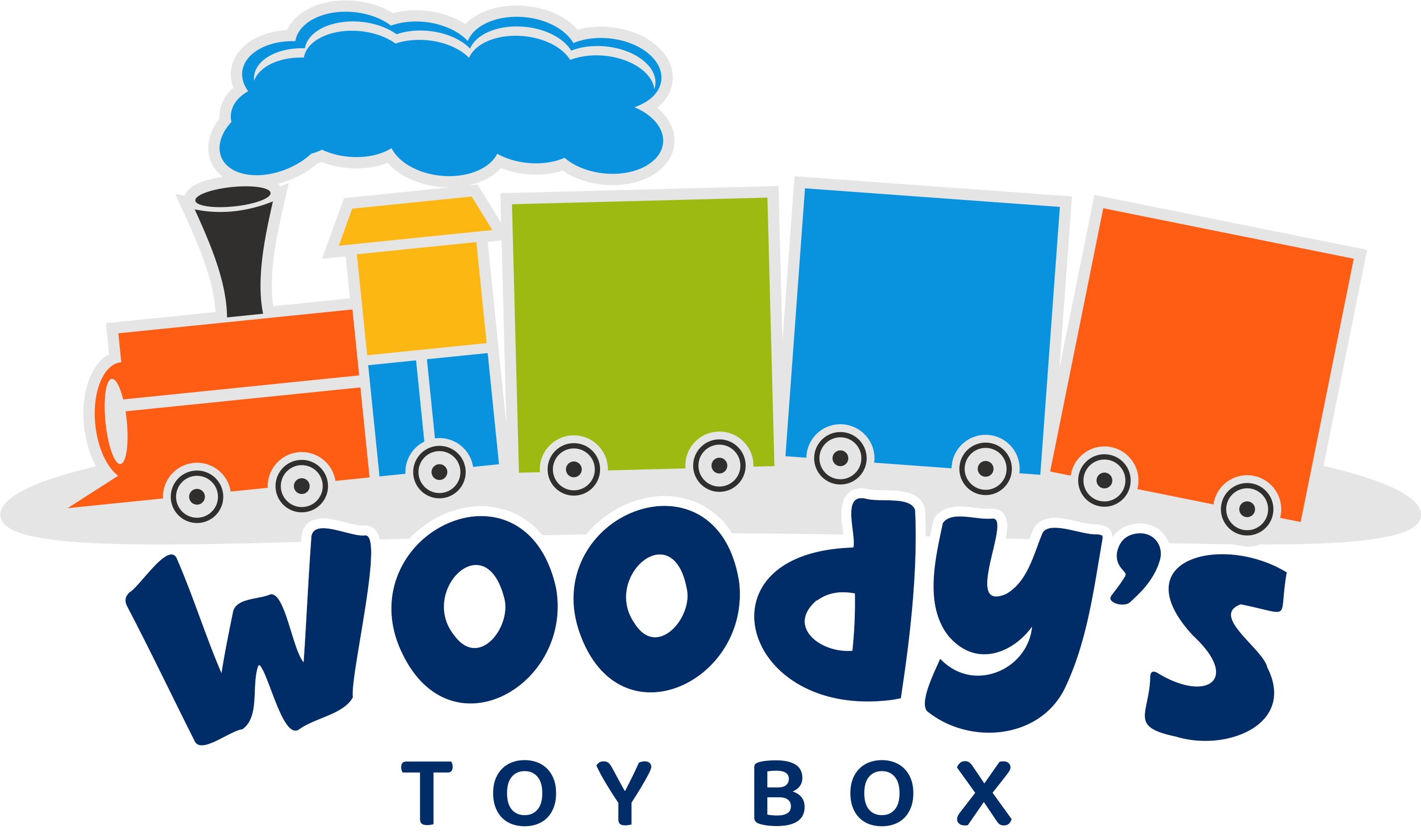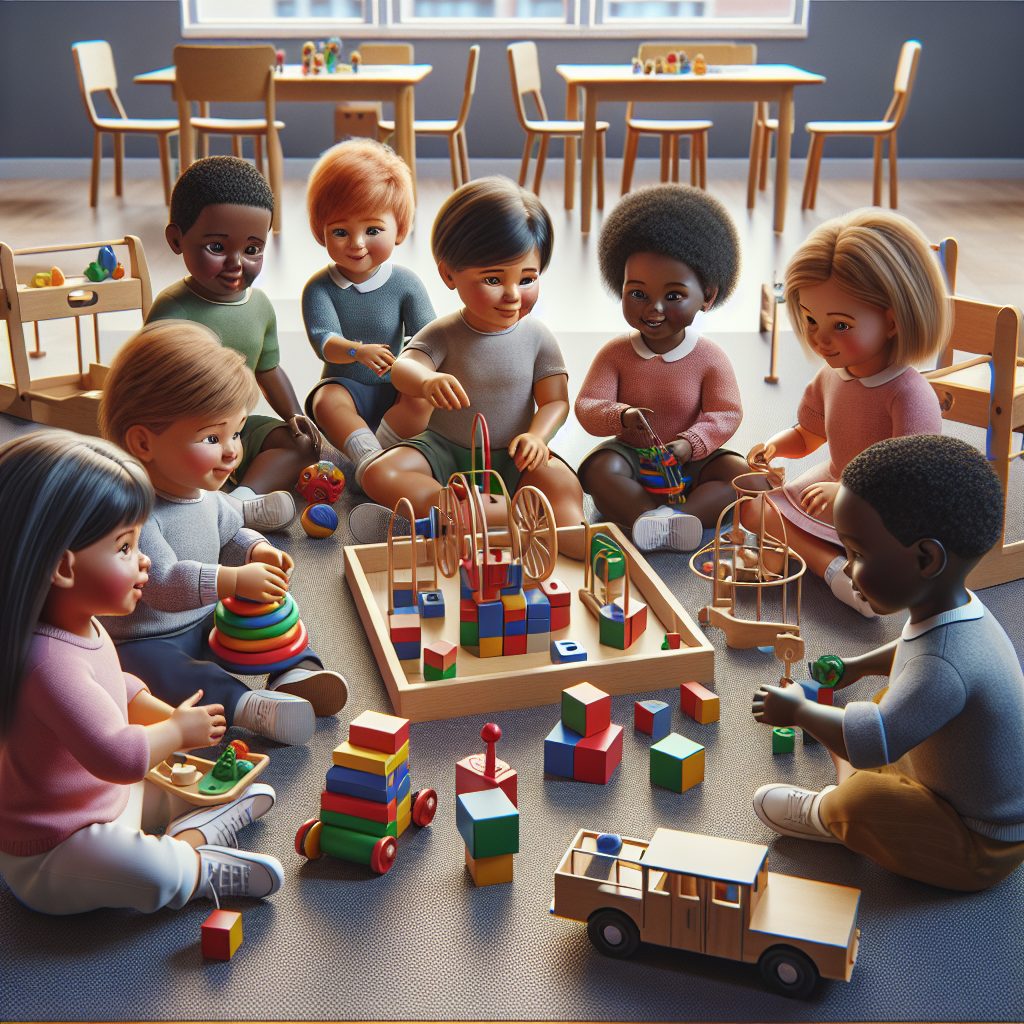Skill Development with Montessori Toys: A Guide
Montessori education, developed by Dr. Maria Montessori, is a child-centered approach that focuses on fostering independence and creativity through hands-on learning experiences. In line with this philosophy, Montessori toys have gained immense popularity as valuable tools for skill development in children. These toys are uniquely designed to engage children in activities that promote cognitive, physical, and social development, making them an excellent choice for parents and educators alike.
One of the key impacts of using Montessori toys is the enhancement of critical thinking and problem-solving skills. These toys are carefully crafted to stimulate children’s curiosity, allowing them to explore, experiment, and find solutions on their own. By introducing concepts such as sorting, sequencing, and matching, Montessori toys encourage children to think critically, analyze patterns, and make logical connections. This hands-on approach to learning not only engages children actively but also helps them develop essential cognitive skills that lay a strong foundation for future academic success.
Moving forward, let’s delve into the key takeaways from this guide that will highlight the various skills that can be nurtured through Montessori toys. We will explore how these toys aid in the development of fine motor skills, language and communication skills, problem-solving abilities, and social skills. By understanding the benefits and unique features of Montessori toys, parents and educators can make informed choices to create a stimulating and holistic learning environment for children. So, let’s embark on this enlightening journey of skill development with Montessori toys.
Key Takeaways
1. Montessori toys are designed to develop essential skills in children, such as fine motor skills, concentration, and problem-solving abilities.
2. The toys are thoughtfully designed to be simple and tactile, allowing children to engage their senses and explore different materials and textures.
3. Montessori toys promote independent play and self-directed learning, encouraging children to explore and discover at their own pace.
4. These toys also foster creativity and imagination, as they are open-ended and do not have a predetermined outcome, allowing children to use them in various ways.
5. By providing a hands-on learning experience, Montessori toys support the development of essential early childhood skills and lay a solid foundation for future learning.
How can Montessori toys aid in skill development? A comprehensive guide
Understanding the Montessori Approach to Skill Development
The Montessori education philosophy emphasizes a child-centered approach to learning, allowing children to explore and develop their skills at their own pace. Montessori toys play a fundamental role in enabling children to enhance various skills while promoting independence, concentration, and self-discipline.
Promoting Fine Motor Skills
Montessori toys are meticulously designed to support and develop fine motor skills. From puzzles that require manipulation of small pieces to toys with knobs and buttons, these toys encourage children to refine their hand-eye coordination, finger dexterity, and grip strength.
Enhancing Cognitive Skills
Montessori toys are renowned for their ability to foster cognitive development. Toys like stacking blocks, shape sorters, and counting beads engage children’s thinking skills, problem-solving abilities, and logical reasoning. These toys provide the perfect opportunity for children to explore concepts like size, shape, color, and number recognition.
Stimulating Sensory Exploration
Montessori toys often incorporate sensory experiences that ignite a child’s curiosity and encourage exploration. Toys with different textures, colors, and sounds captivate children’s senses, helping them develop awareness and understanding of the world around them.
Promoting Language and Communication Skills
Montessori toys offer rich opportunities for language development and communication skills. Activities such as matching objects to pictures, sorting objects by category, and storytelling with themed toys stimulate language acquisition, vocabulary expansion, and expressive communication.
Fostering Emotional and Social Development
Montessori toys promote emotional intelligence and social skills by encouraging cooperative play, turn-taking, and sharing. Toys that involve role-playing, such as dollhouses or kitchen sets, help children develop empathy, imaginative thinking, and social interactions.
Nurturing Gross Motor Skills
While Montessori toys are often associated with fine motor skill development, they also offer opportunities to enhance gross motor skills. Toys like balance boards, climbing structures, and outdoor play equipment promote coordination, balance, body awareness, and physical strength.
Encouraging Concentration and Focus
One of the core principles of the Montessori approach is allowing children to concentrate on activities for extended periods. Montessori toys are designed to capture children’s interest and maintain engagement, promoting concentration, focus, and attention span.
Cultivating Independence and Self-Discipline
The Montessori method focuses on fostering independence and self-discipline in children. Montessori toys encourage children to make choices, follow instructions, and complete activities independently, empowering them to take ownership of their learning journey.
Providing a Sustainable and Eco-Friendly Option
Many Montessori toys are made from natural, eco-friendly materials, ensuring a safer and more sustainable play experience. These toys often use wood, organic fabrics, and non-toxic paints, minimizing environmental impact and promoting a healthier play environment for children.
How to Make the Most of Montessori Toys for Skill Development?
- Observe your child’s interests and choose toys that align with their current developmental stage.
- Rotate toys regularly to maintain novelty and prevent boredom.
- Engage in open-ended play with your child and allow them to explore the toys freely.
- Provide opportunities for uninterrupted play, allowing your child to focus and concentrate without distractions.
- Encourage independent exploration and problem-solving rather than providing immediate solutions.
- Model appropriate behavior and language during playtime, reinforcing positive social interactions.
- Create a safe and organized environment where toys are easily accessible for your child to select and return.
- Offer a mix of individual and group play experiences to promote both independent and cooperative skills.
- Engage in conversations and ask open-ended questions related to the toys, encouraging language development and critical thinking.
- Monitor your child’s play and provide support and guidance when needed, extending their learning opportunities.
Frequently Asked Questions
1. What are Montessori toys and how do they promote skill development?
Montessori toys are educational toys that follow the principles of the Montessori method, focusing on self-directed learning and hands-on activities. These toys promote skill development by incorporating elements like problem-solving, creativity, fine motor skills, and sensory exploration.
2. At which age should I introduce Montessori toys to my child?
The ideal age to introduce Montessori toys to your child is around 6 months to 1 year. However, different toys are designed for different age groups, so it’s important to select toys that are appropriate for your child’s developmental stage.
3. How do Montessori toys enhance cognitive development?
Montessori toys encourage cognitive development through activities that stimulate the brain, such as puzzles, matching games, and sorting activities. These toys promote critical thinking, problem-solving skills, and logical reasoning in children.
4. Can Montessori toys help develop social skills?
Yes, Montessori toys can help develop social skills in children. Toys like pretend play sets, board games, and construction toys encourage cooperation, sharing, turn-taking, and communication between children, fostering their social interactions and skills.
5. Are Montessori toys suitable for children with special needs?
Montessori toys can be adapted to suit the needs of children with special needs. These toys offer sensory experiences, fine motor skill development, and problem-solving activities that can be beneficial for children with different abilities and learning styles.
6. How can Montessori toys support language development?
Montessori toys promote language development through activities like storytelling, word puzzles, and letter recognition games. These toys encourage vocabulary building, early reading skills, and language expression in children.
7. Do Montessori toys require parental supervision?
While some Montessori toys are suitable for independent play, it’s important for parents to supervise younger children and guide them during playtime. This allows parents to provide assistance, encourage learning, and ensure the child’s safety.
8. Can Montessori toys help develop fine motor skills?
Yes, Montessori toys are designed to develop fine motor skills. Activities like stacking blocks, threading beads, and using tweezers help children improve their hand-eye coordination, finger dexterity, and muscle control.
9. Are Montessori toys expensive?
Montessori toys can vary in price, but they are generally designed to be affordable and accessible to a wide range of families. Additionally, you can also find DIY Montessori-inspired activities using household items to minimize costs.
10. How can I choose the right Montessori toys for my child?
When choosing Montessori toys, consider your child’s age, interests, and developmental needs. Select toys that offer a range of activities, encourage hands-on exploration, and align with your child’s specific skills you want to focus on.
Final Thoughts
Engaging children in skill development activities using Montessori toys can have a significant impact on their overall growth and learning. These toys offer a holistic approach to learning by combining play with educational concepts, promoting cognitive, physical, and emotional development.
Remember, the key is not just the toy itself, but how it is used to stimulate exploration, independent thinking, and problem-solving. By providing children with the right Montessori toys and allowing them the freedom to explore and learn at their own pace, we can foster their creativity, confidence, and lifelong love for learning.

